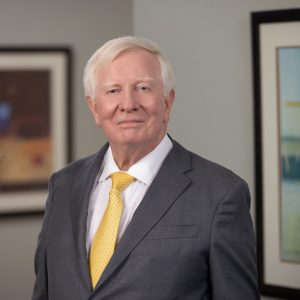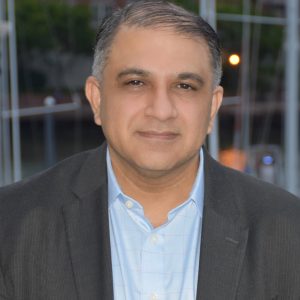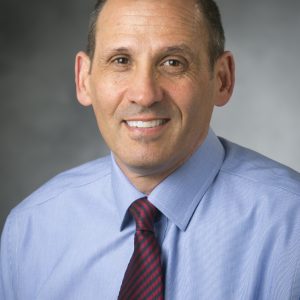CEO Leadership Series: Suman Shirodkar, CEO, Cambridge Epigenetix
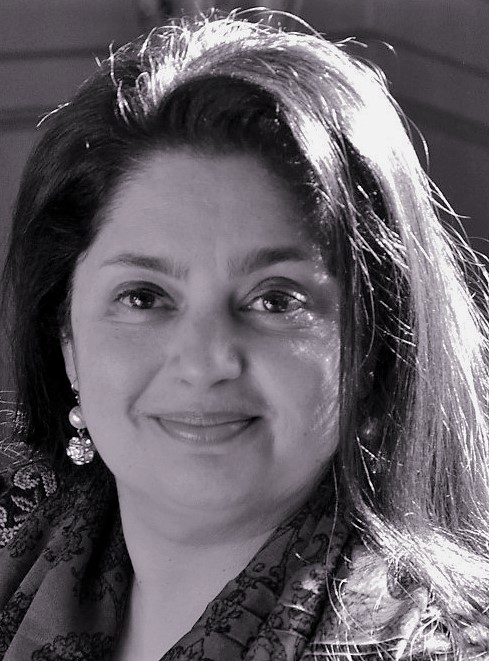
CHANGING THE PARADIGM OF CANCER DIAGNOSIS
When Suman Shirodkar, MBBS, Ph.D., became the CEO of Cambridge Epigenetix Ltd. in 2018, she brought several decades of diverse leadership experience in biotech and pharmaceutical companies and enduring inspiration from two generations of her family’s excellence in the life sciences.
As the CEO of Cambridge Epigenetix, Dr. Shirodkar integrates the skills of her diverse team, whose challenging mission is to develop a diagnostic screening test for cancer via a simple blood draw, by deploying the power of a novel epigenetic modification and other novel technologies.
In an interview with Ashton Tweed, Dr. Shirodkar traces her career journey from India to the United States to the United Kingdom (by way of Switzerland, Germany and Italy), highlights the role courage and grit have played in her success, and discusses what she looks for when assessing potential team members during the interview process:
You’ve held numerous senior positions at some of the biggest pharmaceutical companies in the world. Why did you decide to leave that world to become CEO of a small company?
I took on the challenge of becoming the CEO of a small company because I felt I could truly help move forward an innovative company aiming to deploy cutting-edge science to support earlier and easier diagnosis of cancer.
My decision came following a few years of deep personal exploration in which I found the courage and commitment to challenge myself by embracing an opportunity where I could have an impact on clinical care and take on a role with single-point accountability. The CEO of a small company embodied such a role in my mind. Also in my mind were the conversations I had with several young women I interact with about the importance for women leaders to seize opportunities for true leadership and serve as role models for the younger generation.
After many years of building my skills in Big Pharma, I took some time to consciously explore my future and established my own consulting practice. Setting up my own company was energizing and reaffirmed my excitement to roll up my sleeves and do things. I was able to deploy what I learned working in oncology at Pfizer and Novartis, combined with my core scientific training at Harvard University’s Dana Farber Cancer Institute, to add value to my small company clients. Cambridge Epigenetix was actually one of my first clients, and when the board considered me for the role of CEO, I decided to seize the opportunity.
It has been exciting to have this platform to not only deploy my content experience, but also skills I have acquired around leadership, strategy and operational excellence at different companies across countries and cultures. It is humbling and rewarding to lead in a whole new setting as CEO and I am learning and growing each day.
What challenges have you faced at the company since you became CEO in November 2018?
The challenges I’m facing involve the constantly shifting scientific landscape in the realm of diagnostic testing for cancer. We constantly need to tweak our approach to stay at the forefront of scientific thinking. And we have to do it with a small number of people—very motivated people, but still a small number of people. We have raised $60 million so far in funding and have 60 people in the company.
As a leader I need to constantly ensure appropriate motivation and resourcing of the team in challenging circumstances. I need to constantly evaluate the competency mix on the team and remain focused on recruiting an agile workforce. I also need to ensure operational excellence and instill accountability, while at the same time acknowledging and cherishing the pragmatism of a small company setting. They say leadership is not about “either or” but rather “and” thinking—I find myself constantly looking for ways to find talent that feels the same way.
How do you recruit for an agile workforce?
For me, agility is about the ability to respond to change and to adapt and learn. Agility relies upon curiosity, a learning mindset and a desire to grow. Of course, as I am building the team, I am ensuring that I have the core functional expertise needed at any given point in time. But I am also simultaneously looking for team members with agility—both around content and personal interactions. I assess for agility based both on the journey reflected in the candidate’s résumé and on the interview process.
In the résumé, I look at the person’s path. Have they stayed and repetitively done the same thing over and over again, or have they sought out broader skills even within a functional domain? Have they sought new opportunities to enhance their skills in new areas? Has the candidate worked in different settings over their career? For instance, in the bioinformatics space, which is growing by leaps and bounds, there are people who focus on one narrow part of it and become real experts in it, while there are others who take more of a cross-functional approach.
During the interview, I assess mental agility through techniques to see how the person will solve a problem. I do a lot of “what if” questioning. So, I’ll say, “Okay, this is the project you picked— what did you find out? Well, what if it had gone another way?” Or, “Did you find any parallel between this project and something else?”—and I’ll reference something from my scientific background. I want to see if they can connect the dots. I am also actively looking for examples of active learning from “failure.” Can a candidate give me clear examples of how they adapted when things did not turn out as planned, where they took accountability for their role in the outcome, and what they changed to do things differently?
Finally, I also look for specific examples of the candidate’s agility in relating to different types of people and personalities, and how they build effective relationships.
You’ve had a fascinating journey from studying medicine at the University of Mumbai to getting your Ph.D. from Harvard University to starting your career at McKinsey & Co. What helped you make decisions along the way?
A lot of my choices were driven by a deeply embedded quest for excellence. My family instilled in me a strong work ethic and a focus on achieving your full human potential, while not being too concerned about the outcome. Sometimes things work out the way you want and other times they don’t, but the journey is not the goal, it’s the reward. Being at the forefront of my field to make the greatest impact possible and realizing my full potential has always been my aspiration. The greatest influence in my life was my grandfather, Dr. V.N. Shirodkar, who was an eminent obstetrics/gynecologic surgeon. He was very inventive and devised several operations that are named after him and widely used today. Coming from very modest means, it was his drive for excellence that led to his success. His journey formed a deep impression on me.
At each stage of my life, I have asked myself whether I am doing my very best to have an impact and make a difference. Of course, this pursuit of excellence has only been possible through commitment, perseverance and access to some key mentors along the way.
What attracted you to oncology?
My great-grandmother passed away when she was relatively young of a female reproductive tract tumor—and that caused my grandfather to say he wanted to become a physician and a surgeon because he saw what his mother went through.
My father in turn, decided to become a physician scientist and researched viruses and their relationships to cancer. He was an amazing storyteller and it was his stories that created my interest in science and oncology. I decided to follow in his footsteps and to train as a physician and then pursue a Ph.D. in basic science connected with the biology of cancer.
Do you have any advice to give women who are striving for excellence?
Be aware of the fire that burns within you and keep it alive. The journey of a woman leader is not easy and it takes effort—the fuel for this effort can only come from a deep passion for one’s purpose.
There can be times when the task seems daunting so it is key to take some time out for yourself. Given the dearth of senior women leaders, it is important to identify role models and like-minded colleagues who can support you. You will always find the right path as long as you follow your core principles and motivation.
After decades in consulting and in Big Pharma, I decided to take a few months off and connect with my family and heritage in India. This exploration transformed me, and I came back rejuvenated and ready to go on a related but different career path of consulting for small biotech companies. This decision took courage and—to paraphrase Steve Jobs—looking back, connecting the dots, it was the best decision I made.
So my core advice to aspiring women leaders is to be courageous, ask the soul-searching questions, be authentic and true to yourself, and seek support, guidance and sponsorship to forge your own path. Remember that there are many platforms that can serve you to live your passion and make a difference.
What do you see for the future of cancer treatment?
I’m very excited about the future. When I started my Ph.D. program, the only treatment for cancer patients was chemotherapy. Today, there are some cancers that we’re close to curing, and there are now multiple options for patients with most cancers. If I’m fortunate enough to continue to do this for many more years, we could see a sea change in the diagnosis of cancer, which is the single most important intervention to reduce cancer-related mortality. I am so excited and truly heartened by where we could be through this exploration.
Ashton Tweed would like to thank Suman Shirodkar for this interview. If your company needs help from members of the Ashton Tweed Life Sciences Executive Talent Bank, we can supply that assistance either on an interim or a permanent basis. Additionally, if you are among the many life sciences professionals affected by the changes in the industry, Ashton Tweed can help you find the right placement opportunity — from product discovery through commercialization at leading life sciences companies — including interim executive positions and full-time placements. In either case, please email Ashton Tweed or call us at 610-725-0290. Ashton Tweed is pleased to continue to present insightful articles of interest to the industry.
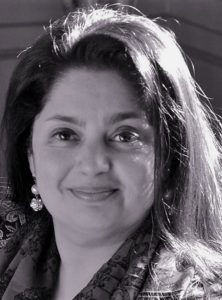 Suman Shirodkar
Suman Shirodkar
Suman Shirodkar, MBBS, Ph.D., is the CEO of Cambridge Epigenetix in Cambridge, United Kingdom, and the president of the consulting firm Veritas Vita. She previously held several positions for Novartis entities, including Global Disease Lead, Lung Cancer; Hematology Franchise Director, Oncology Region Europe; and Head Global Portfolio Strategy and New Products – Biosimilars.
Dr. Shirodkar also worked at Pfizer as the Director, Oncology New Products and Senior Manager, Portfolio and Decision Analysis/CV Marketing. She additionally held positions at The Medicines Company, Bristol-Myers Squibb, and McKinsey & Co. She earned a Ph.D. in tumor virology from Harvard University and a Bachelor of Medicine Bachelor of Surgery (MBBS) from the University of Mumbai. Her interests include reading, music, languages and yoga.



